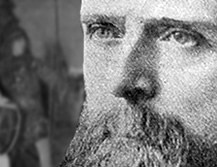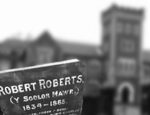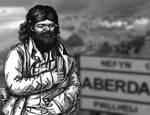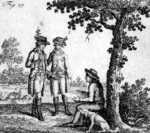Description
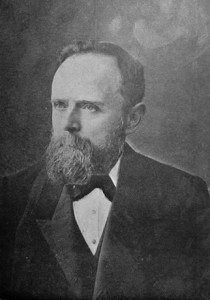 Meet Beriah Gwynfe Evans, author of a 1904 Welsh play about the ancient Briton Caractacus, or Caradog, who fought like Boadicea against the Romans in the Welsh borders. The play, which premiered at Abergele County High School in North Wales, started a craze for Caradog operettas in Welsh-speaking schools and amateur dramatic societies, designed to foster patriotism and martial valour in the young. In 51 BCE, according to the Roman historian Tacitus, Caradog led a courageous defence of Wales by the tribe known as Silures. Tacitus describes Caradog’s rousing battle exhortation, in which he told the Welsh that it ‘would be the beginning of the recovery of their freedom, or of everlasting bondage. He appealed, by name, to their forefathers who had driven back the dictator Caesar, by whose valour they were free from the Roman axe and tribute, and still preserved inviolate the persons of their wives and of their children. While he was thus speaking, the host shouted applause; every warrior bound himself by his national oath not to shrink from weapons or wounds.’ Caradog was betrayed by another Briton, captured, and paraded in chains in the Roman forum. Once again his oratory was much admired by Tacitus. But the defiant speech he delivered to the Emperor Claudius, according to the Roman historian Tacitus, saved his life. By enacting Evans’ stirring play, with its speeches lifted from Tacitus, young Welshmen were prepared emotionally and psychologically for war. When the Germans occupied Belgium in 1914, the Welsh were invited to defend the independence of a ‘gallant little country’, as the propaganda put it, like their own. Coal mining, which took place in south Wales, was designated an essential industry, but in Welsh-speaking Wales, where the slate quarries had closed, there were thousands of unemployed youths easily persuaded to discover their inner Caradog and die at Gallipoli or Ypres.
Meet Beriah Gwynfe Evans, author of a 1904 Welsh play about the ancient Briton Caractacus, or Caradog, who fought like Boadicea against the Romans in the Welsh borders. The play, which premiered at Abergele County High School in North Wales, started a craze for Caradog operettas in Welsh-speaking schools and amateur dramatic societies, designed to foster patriotism and martial valour in the young. In 51 BCE, according to the Roman historian Tacitus, Caradog led a courageous defence of Wales by the tribe known as Silures. Tacitus describes Caradog’s rousing battle exhortation, in which he told the Welsh that it ‘would be the beginning of the recovery of their freedom, or of everlasting bondage. He appealed, by name, to their forefathers who had driven back the dictator Caesar, by whose valour they were free from the Roman axe and tribute, and still preserved inviolate the persons of their wives and of their children. While he was thus speaking, the host shouted applause; every warrior bound himself by his national oath not to shrink from weapons or wounds.’ Caradog was betrayed by another Briton, captured, and paraded in chains in the Roman forum. Once again his oratory was much admired by Tacitus. But the defiant speech he delivered to the Emperor Claudius, according to the Roman historian Tacitus, saved his life. By enacting Evans’ stirring play, with its speeches lifted from Tacitus, young Welshmen were prepared emotionally and psychologically for war. When the Germans occupied Belgium in 1914, the Welsh were invited to defend the independence of a ‘gallant little country’, as the propaganda put it, like their own. Coal mining, which took place in south Wales, was designated an essential industry, but in Welsh-speaking Wales, where the slate quarries had closed, there were thousands of unemployed youths easily persuaded to discover their inner Caradog and die at Gallipoli or Ypres.

